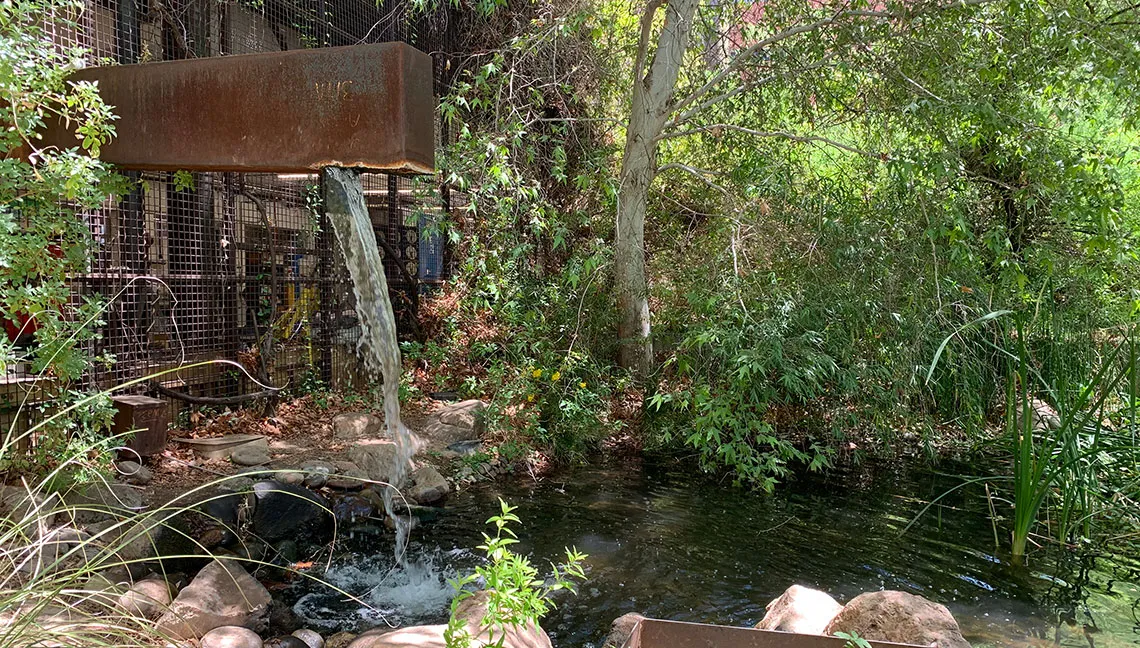Bloomberg CityLab and Archinect Highlight CAPLA’s Innovative Air-Conditioning Condensate Reuse

Fountain using A/C condensate in the Underwood Family Sonoran Landscape Laboratory. Photo by Simmons Buntin.
Each year, the College of Architecture, Planning and Landscape Architecture building—officially Architecture West and Architecture East—reuses 95,000 gallons of air-conditioning condensate to supply the fountain, pond and stream in the lush Underwood Family Sonoran Landscape Laboratory adjacent to the building.
CAPLA’s water reuse initiative is one of several projects featured in an article published on May 11, 2021 in Bloomberg CityLab, “Air Conditioners Might Be One Water Source of Our Urban Future” and on May 21, 2021 in Archinect: "Could reusing the condensate from air conditioners be a feasible solution to mitigating water scarcity?"
In the article, Assistant Professor of Architecture, Sustainable Built Environments and Marketing Jonathan Bean notes that reusing condensate may not be a critical piece in counteracting climate change, but it is important.
“It’s a resource that you’re expending a fair amount of energy to generate, so why wouldn’t you [resuse it]?” asks Bean. Reusing the water makes for more climate-intelligent buildings, even in an arid environment like Southern Arizona, where condensate is not as readily available as elsewhere.
Other innovative condensate reuse examples cited by Bloomberg CityLab include Microsoft facilities in Herzyila, Israel, Twycross, United Kingdom and Hyderabad, India; the Austonian 56-story residential tower and Austin Central Library in Austin, Texas; and a partnership between San Diego International Airport and Ballast Point Brewing to use condensate from cooling towers to produce SAN Test Pilot, “a lighter German-style kölsch beer that needs good water.”
In reusing condensate and other efficiency measures, CAPLA’s Underwood Family Sonoran Landscape Laboratory achieves an 83% reduction in potable water use for irrigation and a total potable water use reduction of approximately 230,000 gallons per year.
Learn more about the Underwood Family Sonoran Landscape Laboratory, or explore the variety of architecture, landscape architecture and sustainability programs offered by CAPLA.



